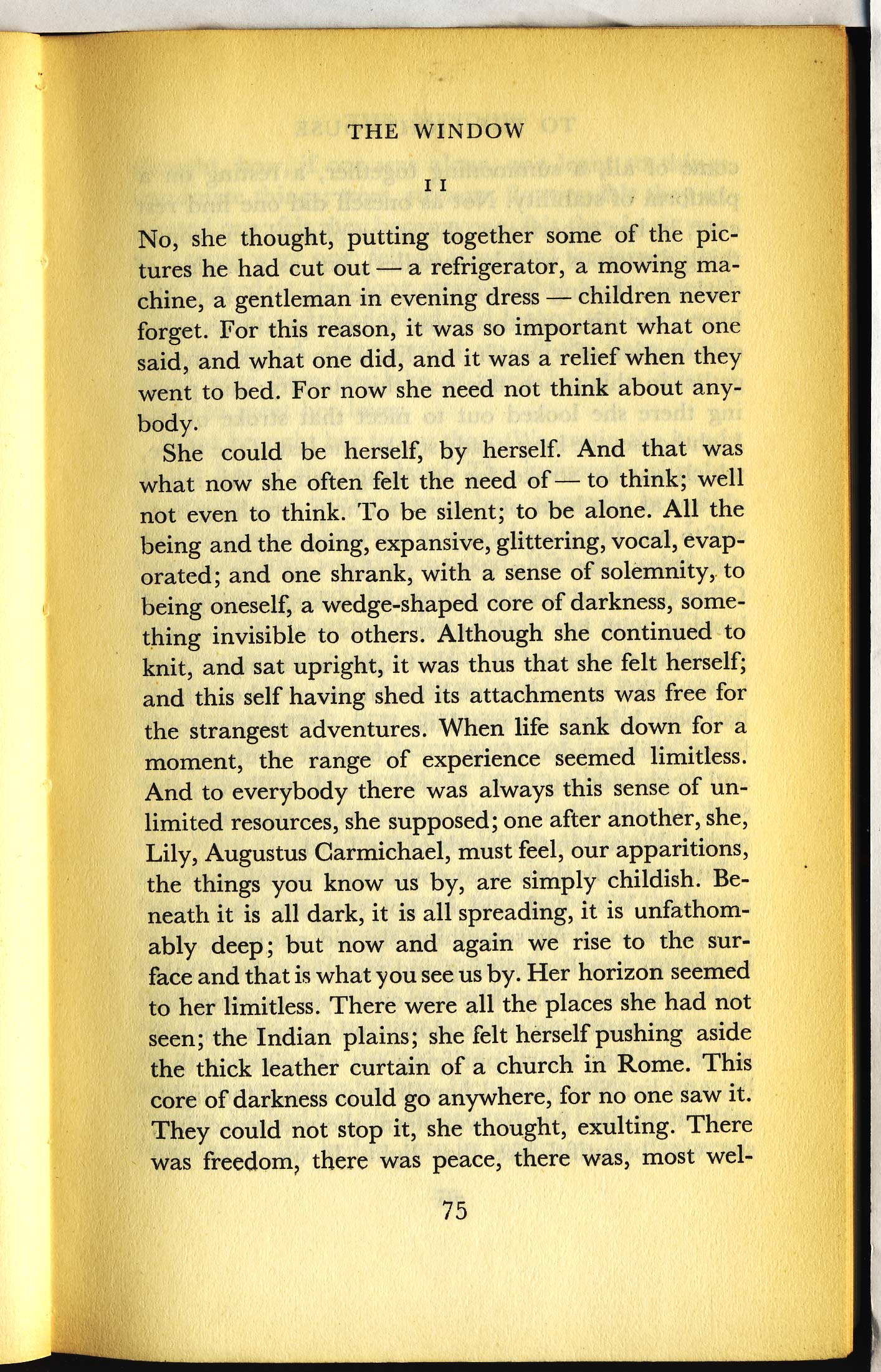
THE WINDOW11No, she thought, putting together some of the pic-tures he had cut out — a refrigerator, a mowing ma-chine, a gentleman in evening dress — children neverforget. For this reason, it was so important what onesaid, and what one did, and it was a relief when theywent to bed. For now she need not think about any-body.She could be herself, by herself. And that waswhat now she often felt the need of — to think; wellnot even to think. To be silent; to be alone. All thebeing and the doing, expansive, glittering, vocal, evap-orated; and one shrank, with a sense of solemnity, tobeing oneself, a wedge-shaped core of darkness, some-thing invisible to others. Although she continued toknit, and sat upright, it was thus that she felt herself;and this self having shed its attachments was free forthe strangest adventures. When life sank down for amoment, the range of experience seemed limitless.And to everybody there was always this sense of un-limited resources, she supposed; one after another, she,Lily, Augustus Carmichael, must feel, our apparitions,the things you know us by, are simply childish. Be-neath it is all dark, it is all spreading, it is unfathom-ably deep; but now and again we rise to the sur-face and that is what you see us by. Her horizon seemedto her limitless. There were all the places she had notseen; the Indian plains; she felt herself pushing asidethe thick leather curtain of a church in Rome. Thiscore of darkness could go anywhere, for no one saw it.They could not stop it, she thought, exulting. Therewas freedom, there was peace, there was, most wel-75









